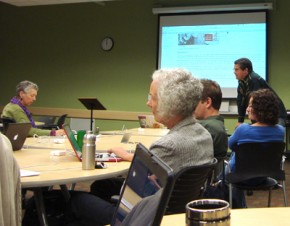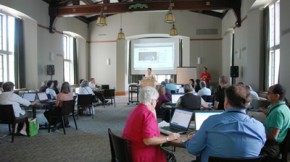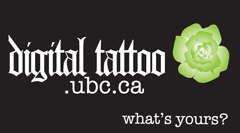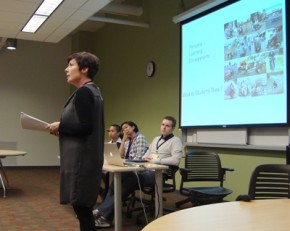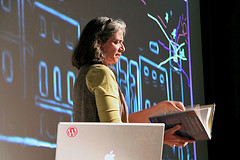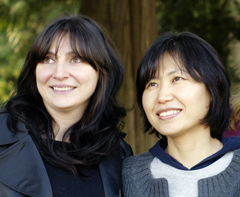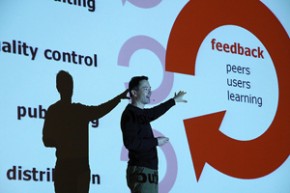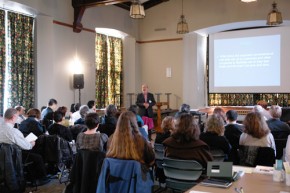Promoting Openness in Higher Education: Which Way Now?
Putting a twist on the traditional lecture style presentations that delegates have become accustomed to, Brian Lamb, from the Office of Learning Technology, led an open discussion at the 2009 Canadian e-Learning Conference. The discussion revolved around the open education movement as well as particular challenges that are being faced.
WordPress in Education – Better, Stronger, Faster
The Paper Jam session on WordPress, at the 2009 Canadian e-Learning Conference, addressed the many functions of the open source publishing platform. WordPress can be used as a content management system, and has a user-friendly template system that allows the user to rearrange their pages without editing traditional computer code.
Digital Tattoo: Highly Visible and Hard to Remove
The Digital Tattoo project was designed with the clear goal “to help students become aware of their rights and responsibilities as creators and consumers of digital information in their personal, academic, and professional lives”.
Personal Learning Environments: What do Students Think?
Interest in the concept of personal learning environments (PLE) began in the late 1990s as new technologies made it easier for learners to take control of and manage their own learning experiences. Although much has been written about PLEs in scholarly journals and professional articles, very little has been heard from students on this topic – until now.
e-Portfolio Implementation in Teacher Education
The e-portfolio project was initiated by the Faculty of Education during the 2007/2008 school year as a graduating requirement for all teaching candidates. The use of e-portfolios was discussed as both a tool for student reflection and as an auditing tool for the BC College of Teachers (BCCT).
CeLC 2009 Keynote: Barbara Ganley and CeLC Closing Remarks
The 2009 Canadian e-Learning Conference was opened by Barbara Ganley, a former professor who is now the current director and founder of Digital Explorations – a not for profit organization that brings multimedia to remote, rural places. To commence the keynote address, Ganley revealed that “fear is the biggest obstacle to trying things that are new”.
Use of Needs Assessment for the Evaluation of Online Education in Higher Education
How often are decisions at public institutions made without a proper needs assessment? Anyone who works regularly on projects probably has many stories of initiatives gone awry due to insufficient planning and undefined project scope.
Breaking out of the CMS: Civilizing the Open Internet Frontier for Learning
Course co-author David Porter, Instructional Designer Jeff Miller, and MET students, Jarrod Bell and Deepika Sharma, described the experience of moving ETEC 522 beyond WebCT as a course management system into several social media environments during their presentation at the Canadian e-Learning Conference.
CeLC 2009 Keynote: Richard Baraniuk
A stack of records and a group of college students in a punk-rock band: these are just two of the compelling and intriguing images that Richard Baraniuk used to launch his keynote lecture on the second day of the Canadian e-Learning Conference. He promised to show the audience a whole new way of thinking about content and distribution – and he delivered.
Experience.do.understand: EduCamp ’09
The inaugural LTI EduCamp was held at UBC’s Irving K. Barber Learning Centre on February 18th, 2009. The morning started off with keynote speaker Richard Rosenberg, Professor Emeritus in the Department of Computer Science at UBC and President of the BC Freedom of Information and Privacy Association.
